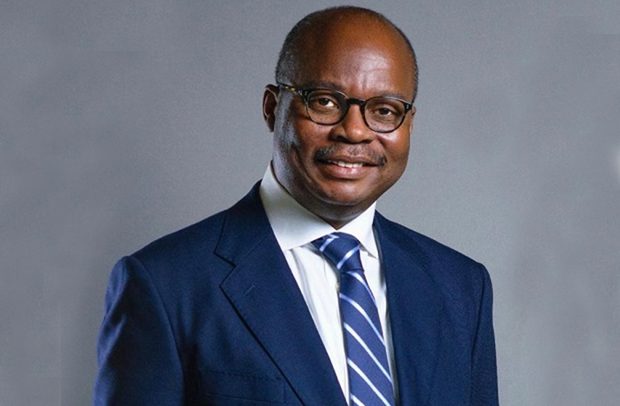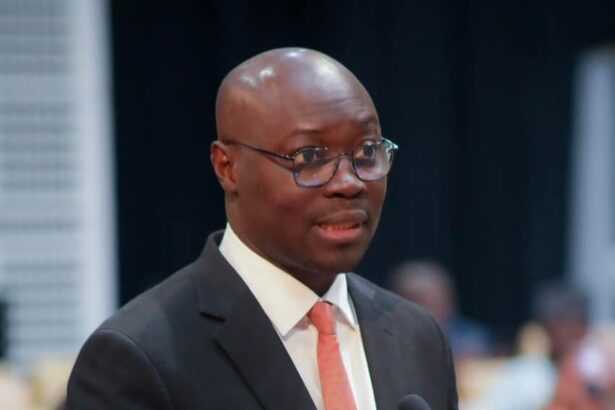
By Kingsley Webora TANKEH
In an effort to tackle the country’s spiralling youth unemployment and earn foreign exchange, government – through the Ghana Labour Exchange Programme (GLEP) – is aiming to export 800,00 to one million skilled and unskilled labour in three to four years.
Briefing media on the programme in Accra, Minister of State for Special Initiatives Emmanuel Kwadwo Agyekum said GLEP is projected to generate foreign exchange in excess of US$10billion annually.
“I’m looking at more than US$10billion coming into this country – probably three times the IMF bailout. This is something that can easily be done,” he said.
According to him, this would be a panacea to the debt-laden country that has gone to the IMF for a bailout 17 times since independence – and is currently under a US$3billion IMF bailout programme until 2026. He stressed that these potential earnings are projected to surpass earnings of the country’s traditional exports like cocoa and gold.
The Bank of Ghana Governor, Dr. Johnson Pandit Asiama, indicated that gold alone has brought in about US$8billion since the GoldBod was established in March. This saw total international reserves surge to US$12billion, bringing relative stability to the local currency. The cedi appreciated by 37 percent year-to-date, according to Dr. Asiama.
He however pointed to the Philippines, which he said earns about US$135billion annually from its overseas workers; and India, which garnered US$130billion in 2023 to prove the programme’s economic potential.
“Closer to home, Egypt now makes about US$35billion from labour export – more than the Suez Canal. Kenya made US$5.08 billion,” he added.
The programme, which he said is the “vision” of President John Mahama, is designed to reduce domestic unemployment, inject massive forex into the economy and upskill the national workforce.
“We are looking at a holistic approach. Some people think that labour export is brain-drain. But I tell people it is rather a brain-gain,” the minister intimated, pushing back against critics who label such initiatives as “brain drain”.
“You cannot stop it. We live in a global village,” he argued, maintaining that workers who go abroad refine their skills, attitude and mentality. According to the minister, this will benefit the country when they return, confirming that “the likelihood of these workers coming back to Ghana is about 80-90 percent”.
The Ghana Labour Exchange Programme targets both highly skilled professionals and unskilled labourers. The minister said doctors, nurses, lab technicians, pharmacists and IT experts are in high demand in other countries and can be exported.
He also noted that carpenters, steel-benders, bricklayers and welders capable of working in industries like shipbuilding are also in high demand.
“For the non-skilled, we are looking at people who can go as helpers, labourers, seasonal farm helpers, or even those who can work on a ship with just a basic training of about six weeks,” he explained.
The minister revealed there is immediate demand for workers worldwide, citing aging populations in several western and Asian countries that need active youth to take up jobs. However, he didn’t state explicitly where these workers will be taken.
He cited continuous demand for Ghanaian workers, stating that “1,000 to 2,000 nurses” are being recruited for specific locations and 654 drivers already recruited for a single country.
Mr. Agyekum indicated that plans are far advanced to streamline travelling processes and ensure the workers safety, stating that dedicated desks will be put at various embassies to handle issues and queries and fast-track the acquisition of travelling documents for these workers.
“The safety of our people is the paramount thing. All our embassies are going to have a desk officer,” he said, adding that government is signing memoranda of understanding (MoUs) with host countries to protect the workers’ rights.
The minister emphasised that some training may be provided for people seeking jobs without prior training, adding that the workers will be given initial contract periods ranging from 9 months to 2 years – after which they can return to Ghana or opt for a contract renewal.
However, he expressed his outfit’s commitment to collaborating with other ministries and government agencies in ensuring that the programme achieves its intended purpose of stemming the unemployment canker and securing the livelihoods and welfare of Ghanaians youth while earning foreign exchange for the country.
The post Gov’t to generate US$10bn forex annually exporting workers appeared first on The Business & Financial Times.
Read Full Story




















Facebook
Twitter
Pinterest
Instagram
Google+
YouTube
LinkedIn
RSS